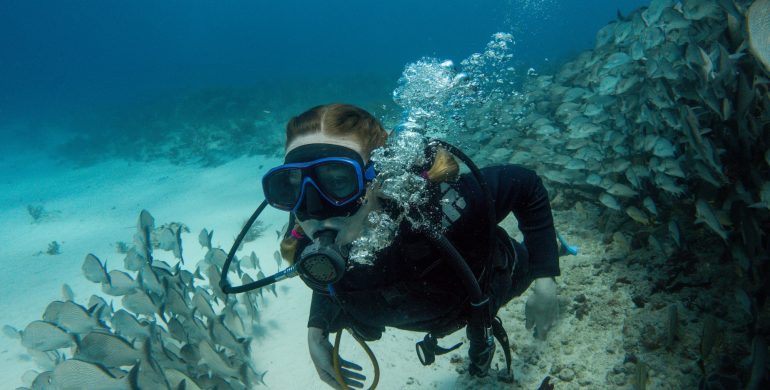
Scuba diving is a form of underwater exploration. It’s a sport that allows you to explore more depths than snorkeling. In scuba diving, a diver wears equipment to keep them buoyant and to provide oxygen for their body. Many people enjoy scuba diving for recreational purposes, but others do it professionally as commercial divers, public safety divers, and marine biologists.
There are many types of scuba equipment available to divers. Some divers own all of their equipment, while other divers rent all of their gear. When selecting diving equipment, divers should look for quality and safety. They should also check with their doctor to make sure they are fit for diving.
Scuba gear is made of chloroprene rubber. The material is one of the major exports from Japan. Using the right type of scuba equipment and having the correct certification can prevent injuries and deaths.
Most people are familiar with scuba diving because of Jacques-Yves Cousteau, who first introduced it to the world in 1942. Cousteau’s dives prompted many more people to take up the hobby. As a result, scuba gear has evolved.
Divers can wear booties, which are neoprene shoes that have open heel fins. These boots ensure that the diver is comfortable and warm. Booties also provide an anchor for the diver’s fins and a secure attachment.
Divers wear a scuba helmet. The helmet is designed to prevent blowing bubbles that could cause injury. Another piece of gear is a surface marker buoy. A surface marker buoy is a tube that allows a diver to be seen from the surface.
Before a diver sets off on a dive, they should make a plan for the dive. This includes assessing the safety of the dive area, making a checklist of their gear, and ensuring that they have on hand any necessary first aid supplies.
Those who are new to scuba should attend a beginner’s diving class. Classes are usually taught in groups. During classes, divers are introduced to the equipment and techniques they will need to use during their dives. Additionally, they learn about the ocean and the environment, and how to respond to emergency situations.
After completing a course, divers may continue their studies with a theory class. Theory classes teach about the equipment used in scuba, how to calculate decompression time, and how to avoid decompression sickness.
To ensure that you are fit for scuba, talk to your doctor and consider any conditions that you might have, such as a history of asthma, diabetes, or other chronic health problems. Also, be aware of the varying tides in your local area. If your dive takes place during a high-tide period, you should know that you will need to decompress before ascending to the surface.
If you are planning a trip to a remote location, you should ask for advice on the scuba equipment that you will need. Your doctor should also advise you on any medications you might need to take while scuba diving.